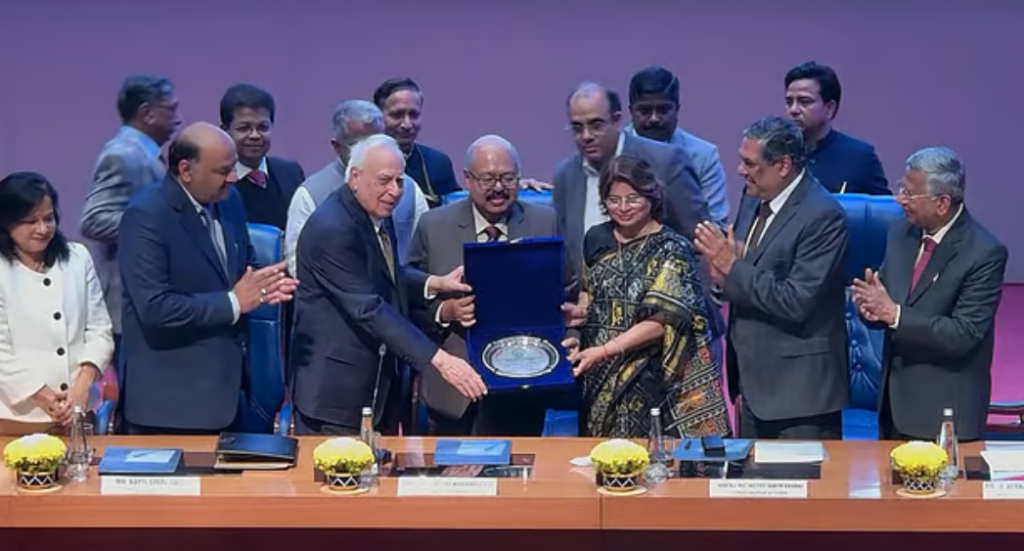Shreya Gupta
Justice Hrishikesh Roy retired from the Supreme Court on 31st January 2025 after serving for over five years. He completed his LL.B from Campus Law Centre, University of Delhi, in 1982 and initially practiced at the Supreme Court before moving to the Gauhati High Court following his father’s death. In 2004, the Gauhati High Court designated him as a Senior Advocate. He was appointed as an Additional Judge of the Gauhati High Court on October 12, 2006, and was made a Permanent Judge in 2008. Later, in August 2018, he became Chief Justice of the Gauhati High Court before being elevated to the Supreme Court on September 23, 2019.
At his farewell function organized by the Supreme Court Bar Association (SCBA), Justice Roy reflected on his legal journey, emphasizing how his experiences had shaped his perspective. He noted that while one enters the legal profession with idealistic notions, the pursuit of justice is a gradual and steady process that strengthens democracy. Chief Justice of India (CJI) Sanjiv Khanna praised Justice Roy, calling him a “multi-faceted personality” whose contributions added depth to the judiciary. He highlighted Justice Roy’s uniqueness, describing how he brought his vibrant personality to the bench while excelling in his judicial work.
Justice Roy’s interests extended beyond law, to arts, literature, and filmmaking. CJI Khanna pointed out his passion for theatre, his encouragement of law clerks and interns to attend plays, and his presidency of the Guwahati Music Society. He was also a trivia enthusiast and an avid reader. The CJI humorously noted that Justice Roy could have been equally successful as a quiz master, actor, or even a stand-up comedian. Justice Roy actively participated in creative endeavors, producing two films, ‘Shaako: The Bridge and Apne Ajnabi, which addressed racial discrimination. This made him the only Supreme Court judge with an IMDb credit.
In legal jurisprudence, Justice Roy made a notable impact, particularly with his dissent in the NN Global case. Alongside Justice Ajay Rastogi, he opined that an arbitration agreement’s enforceability should not be affected by stamp duty deficiencies, as such defects were curable. This minority view was later upheld when the Supreme Court revisited the issue in Re Interplay Between Arbitration Agreements, affirming that arbitration clauses in unstamped or inadequately stamped agreements remain valid.
Justice Roy was part of the bench (COVID-19 Oxygen Supply Crisis,2021) that intervened during the second wave of COVID-19, directing the government to ensure an adequate supply of oxygen to hospitals across the country. His ruling emphasized the fundamental right to life and the state’s duty to provide healthcare facilities. In the Judgment of Anand Singh v. CBI (2023), He played a key role in clarifying legal principles regarding corruption cases and the admissibility of electronic evidence in criminal trials. His judgment strengthened the evidentiary value of digital records in modern investigations.
Instagram: Click here.
LinkedIn: Click here.
For Collaboration and Business: info.desikaanoon@gmail.com

